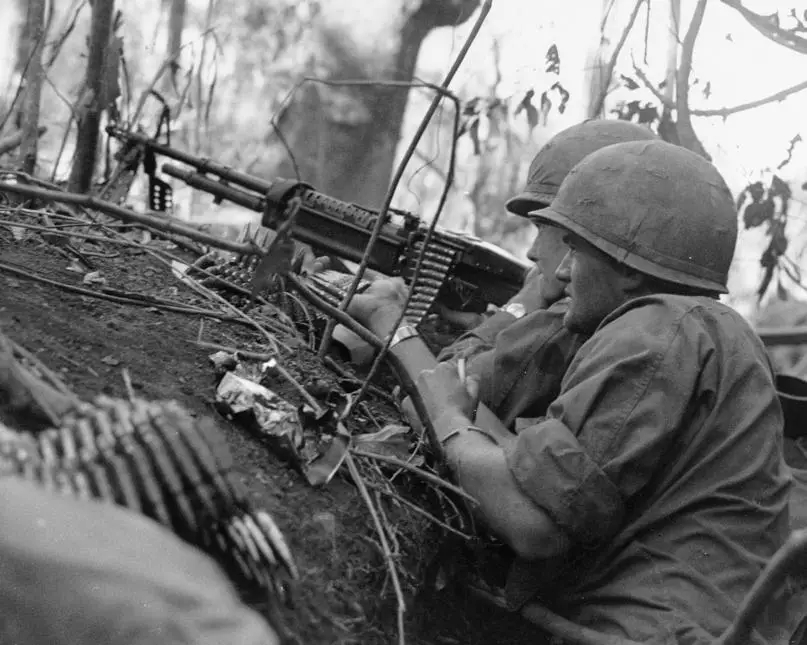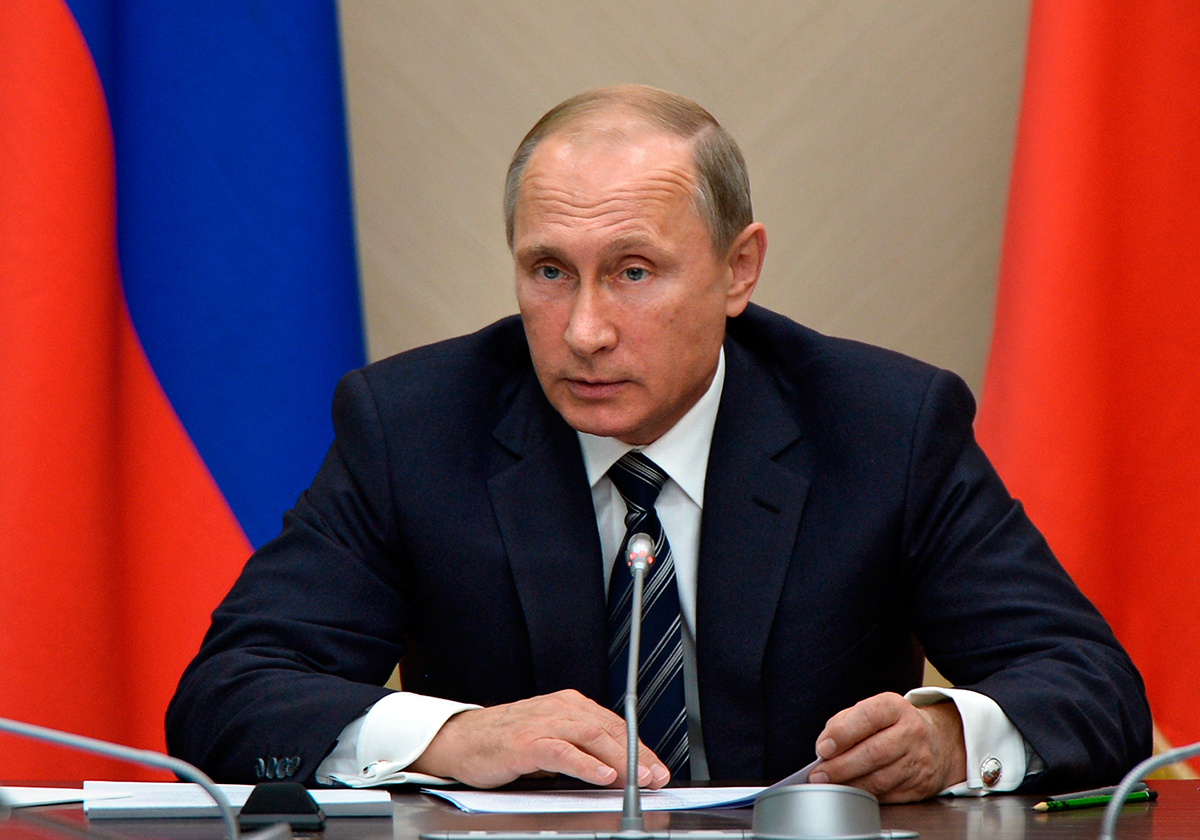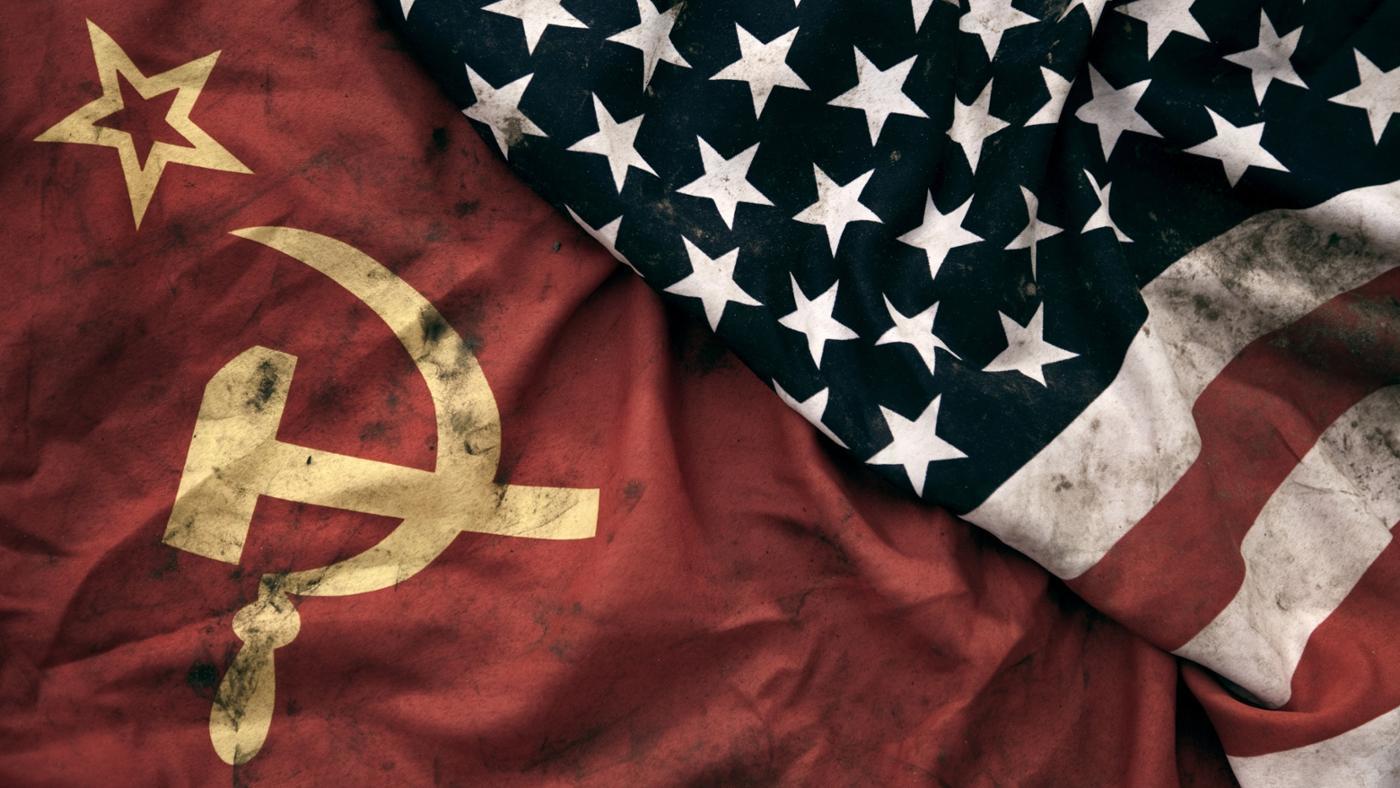During the first World War, against U.S. wishes, Russia underwent a dramatic governmental change, trading a Tsarist autocracy for a communist dictatorship , and souring foreign relations between the two countries in the process. The U.S. did not even formally acknowledge the Soviet Union as a country until 1933. Decades later, necessity forced the two nations to temporarily set aside their differences and fight Nazi Germany together.
In the fallout, the feud was reborn with intensity. The allied, liberated territory was free to set up their governments again, while Russian-conquered territory was added to the Soviet Union. In Asia, communism was spreading at a rate almost equal to the fear of communism in America, creating a new war all its own.
The term Cold War was coined by Bernard Baruch, a presidential financial advisor, in 1947, and it refers to continuously chilling relations between the U.S. and Soviet Union. Some sources speculate that the term points directly to the fact that the two nations did not directly fight each other, but the war was a mess of small proxy-wars, like Korea, Vietnam and Angola. The Cold War was hot, and so were relations between the two major contributing countries.
Although Russians didn’t directly fight Americans, both sides sent armies and special-forces trainers to wars around the globe. And unfortunately, some of these trained fighters sometimes turned into Frankenstein-like monsters.

The Mujahedeen were a group of fighters, trained by U.S. special forces and unleashed against the Soviets during the 1980s invasion of Afghanistan. Many of those fighters would go on to train or fight for the Taliban.
During the Cold War, entire generations spent their childhood years with nuclear annihilation hanging over their heads, pervading headlines and dominating news and cinema. America was taught to fear communism and Russians alike.
The two nations developed a unique agreement, called “mutually assured destruction,” meaning if either side pushes the nuclear button, everyone dies. But, though building a nuclear arsenal was the goal of both nations, they managed to come together and agree to deactivate some of the weapons and reduce their stockpiles.
They also began pioneering new feats of human exploration, reaching the deepest point on Earth at the bottom of the Marianas Trench, a feat that has since only been accomplished four times. A written perspective of the experience was published by one of the two men on the first mission in 1960. The scientific rivalry also took humans, dogs and chimps into space and to the moon.
Even at the height of the Cold War, Russia and the U.S. found ways to work together. In 1975, the Apollo-Soyuz mission saw American astronauts and Russian cosmonauts performing experiments together in space.
Much of the credit for cooperation and political reform goes to Mikhail Gorbachev, who helped found a political movement called “glasnost and perestroika,” which was centered around open trade and contested local elections.
On Christmas Day in 1991, the Soviet flag was lowered for the last time in Russia, and the tri-color flag, that still flies today, was raised. A new Russian president took office, and tensions immediately eased between the U.S. and the Russian Federation. The new president’s name was Boris Yeltsin, and while at the helm of Russian politics, the two countries would once again negotiate openly.
Dissolving the Soviet Union left the U.S. is an unfamiliar position, though. Without its main rival to motivate foreign policy, the country had to rethink the way it worked, like building a massive military and negotiating trade agreements to hurt Russia’s economy. Nearly 50 years of fear and hate followed by perceived victory can feel uncomfortable to a nation.
Throwing out the U.S. foreign-policy playbook resulted in difficult decisions, such as the U.S. refusing to get involved in the dissolution of Yugoslavia, which ended in a blood-stained mess. Meanwhile, the U.S. sent troops on a humanitarian mission to Somalia to feed starving populations.

In 1999, Vladimir Putin would take office in Russia and re-establish the Russian national identity. Relations between the two superpowers continued to remain open, until the recent conflict in the Donbass region of Ukraine saw a Russian takeover of Ukrainian land, resulting in trade sanctions on Russia in 2014. Relations have become somewhat heated ever since.
Anti-American sentiments are strong in Russia. Conservative estimates place the number at about 80 percent, meaning four out of five Russians do not like the U.S. To be fair, Russians have every reason not to, given that U.S. public institutions were teaching their citizens to hate and fear Russians for decades, while U.S. foreign policy hovered around, hindering Russian prosperity in any way possible.
Russia is an age-old country and imperial power with a history dating back to Byzantine enterprise and Viking marauders, whereas the U.S. is relatively new and changes rapidly. The national identity is not that of the nuclear family with a white picket-fence, but it evolves to fit the accomplishments of the times, like the small business owner creating an app and selling it for millions, or the formerly destitute immigrant driving a city bus and sending their children to college.
As the U.S. Department of State says, “Even after 200 years, our relations [with Russia] continue to evolve in both expected and unexpected ways.”
The Trump administration being affected by Russian subversion is unexpected, but if any of the claims contain truth, this would truly be a milestone for U.S.-Russian relations.

















